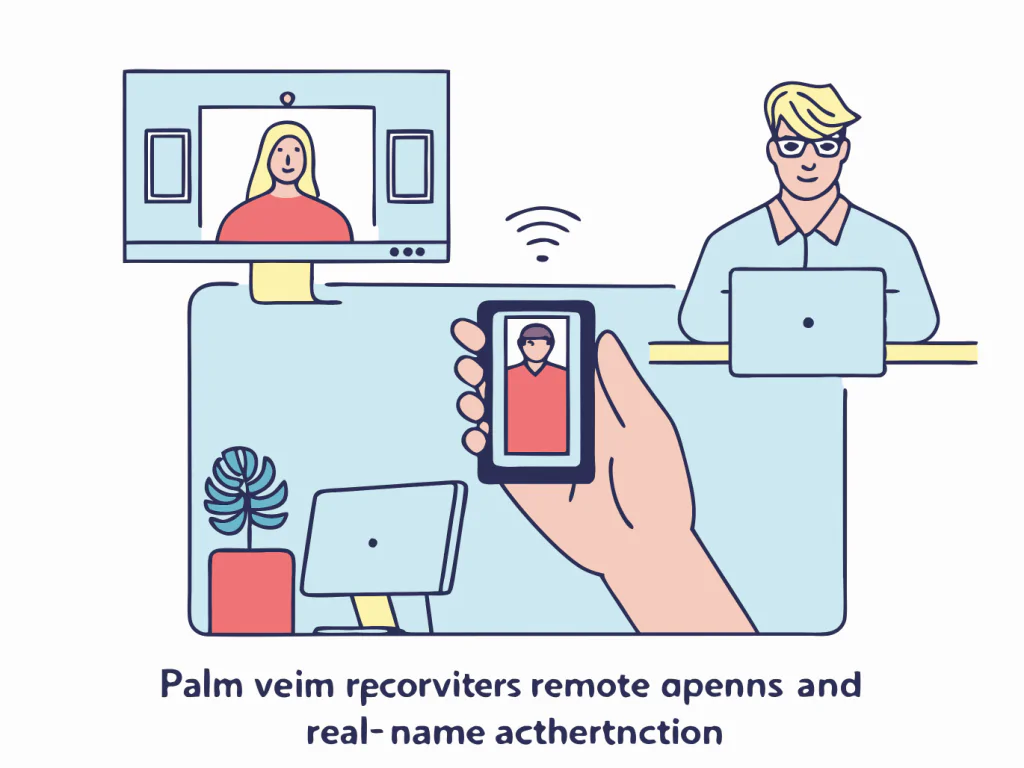I’ve worked with telecom operators looking to expand services to remote regions. One of their biggest challenges is verifying customer identity during remote SIM card registration. Palm vein recognition devices make this process easier, faster, and compliant with real-name KYC rules.
Palm vein recognition devices provide telecom operators with a secure, contactless solution for remote account opening and real-name KYC authentication. These devices ensure compliance, speed up onboarding, and protect user data.
Last year, I helped a telecom group roll out a palm vein KYC program across rural areas. They were able to register new SIM users remotely while staying compliant with real-name regulations.
[Table of contents]
- What Is Palm Vein Biometric KYC and How Does It Work for Remote Telecom Registration?
- Why Do Telecom Operators Choose Palm Vein Devices for Remote Real Name Registration?
- Palm Vein Devices vs Other Biometric Tools for SIM Registration: Which Is Better?
- How Palm Vein Devices Support API Standardization and SDK Open Integration for Telecom KYC Programs
- What Are the Disadvantages of Palm Vein KYC Devices in Telecom Applications?
- How Much Do Palm Vein Devices Cost for SIM Registration and Remote KYC?
- Summary
What Is Palm Vein Biometric KYC and How Does It Work for Remote Telecom Registration?
When I first used palm vein authentication for a remote KYC project, I was surprised by its speed and accuracy. It solved many of the issues we had with other biometrics.
Palm vein biometric KYC uses infrared light to capture the unique vein pattern inside a person’s hand. Telecom operators use this data to verify a subscriber’s identity during remote SIM registration.
The system works in real time, whether online or offline, and syncs with central telecom KYC databases.
How Palm Vein KYC Works for Telecom
- Customer places palm over the scanner
- Infrared light reads vein pattern
- Device creates an encrypted digital profile
- Profile matches or creates a new subscriber record
- Data syncs with central telecom registration system
Benefits for Remote SIM Registration
- Contactless and fast
- High accuracy in identity verification
- Enables onboarding in remote or rural areas
- Supports compliance with real-name regulations
Why Do Telecom Operators Choose Palm Vein Devices for Remote Real Name Registration?
I’ve spoken with telecom value-added service teams needing remote registration tools. They often choose palm vein scanners because they offer more security and accuracy.
Palm vein devices allow telecom operators to perform remote real-name KYC verification with minimal risk. They reduce fraud, prevent identity theft, and ensure compliance with government regulations.
I worked on a case where the telecom operator used palm vein scanners for mobile registration vans. They registered over 50,000 users in areas without fixed service centers.
Key Advantages
- Internal vein data can’t be faked or stolen easily
- Devices work offline and sync later
- Quick verification speeds up SIM activations
- Trusted by regulators for real-name registration programs
Why Palm Vein Leads in Telecom Remote KYC
| Feature | Palm Vein | Fingerprint | Facial Recognition |
|---|---|---|---|
| Security | Very High | Medium | Medium |
| Accuracy | Very High | Medium | High |
| Remote Capability | Yes | Limited | Yes |
| Compliance for Real Name | Strong | Limited | Moderate |
Palm Vein Devices vs Other Biometric Tools for SIM Registration: Which Is Better?
Telecom operators often ask me how palm vein compares to other biometrics for remote SIM registration.
Palm vein devices offer better security and accuracy than fingerprint or facial recognition tools. They are ideal for telecom KYC programs where compliance and data protection are critical.
I worked with a telecom operator who tried facial recognition but struggled with accuracy in poor lighting. Palm vein scanners solved the problem.
Biometric Device Comparison for Telecom Remote KYC
| Feature | Palm Vein | Fingerprint | Facial Recognition |
|---|---|---|---|
| Security | Very High | Medium | Medium |
| Hygiene (Contactless) | Yes | No | Yes |
| Remote Verification | Yes | Limited | Yes |
| User Acceptance | High | Medium | Medium |
How Palm Vein Devices Support API Standardization and SDK Open Integration for Telecom KYC Programs
I’ve worked on several telecom integrations where API standardization was a top concern. Palm vein devices support this need well.
Palm vein devices offer open SDKs and standardized APIs, making integration with telecom KYC systems fast and secure.
One telecom I worked with connected palm vein devices to their existing SIM registration portal using the provided SDK. It was fully operational in under two weeks.
Integration Benefits
- Open SDK for easy development
- Standardized API for seamless data exchange
- Supports multi-platform (Android, Windows, Linux)
- Ensures fast deployment for telecom services
Example of Integration Success
A telecom company integrated palm vein KYC into its mobile registration app. It reduced the registration process time by 40%.
What Are the Disadvantages of Palm Vein KYC Devices in Telecom Applications?
Palm vein devices aren’t without drawbacks. I always explain these to clients before they make a decision.
Palm vein devices are more expensive than fingerprint readers. They also require training for staff and explanation for end-users.
One telecom team I worked with ran a customer education campaign to help users trust the technology.
Common Challenges
- Higher upfront cost ($500 – $2000 per unit)
- Needs staff training
- Some users are unfamiliar with the technology
- Limited vendor availability in some regions
How Much Do Palm Vein Devices Cost for SIM Registration and Remote KYC?
Cost comes up at every telecom conference I attend. Pricing depends on features, volume, and vendor support.
Palm vein KYC devices for telecom remote SIM registration range from $500 to $2000 each. Discounts are common with bulk orders and long-term support contracts.
I helped a telecom negotiate better prices by bundling devices with cloud support services.
Pricing Breakdown
| Vendor | Unit Price | Bulk Discount | KYC Compliance Certification |
|---|---|---|---|
| Vendor A | $1800 | Yes | Yes |
| Vendor B | $1500 | Yes | Basic Compliance |
| Vendor C | $2000 | No | Telecom Real Name Ready |
Summary
Palm vein recognition devices give telecom operators a reliable solution for remote account opening and real-name KYC. They support compliance, enhance user trust, and make remote registration easier.



